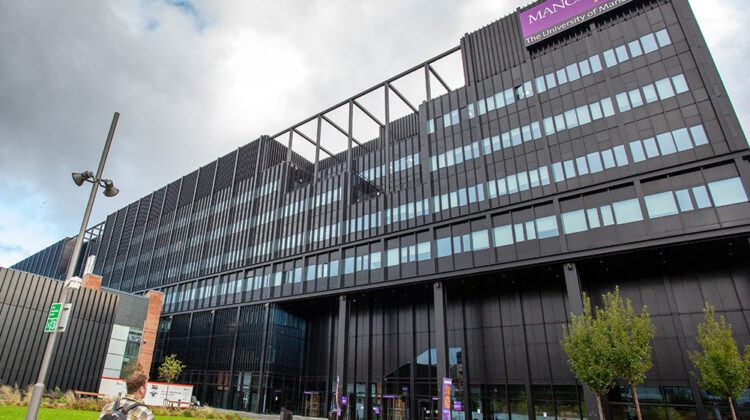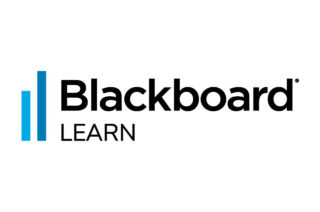Moving to MECD

There are a number of options and resources available to support Teaching and Learning as the faculty moves into MECD
The FSE Collaborative Timetabling website has been updated for the 2022-23 data capture and scheduling cycle. The milestones for the 2022-23 data capture and scheduling period are:
• From November 2021 – Departmental timetabling colleagues receive training, advice and guidance on the timetable data capture and scheduling process.
• Friday the 25th February 2022 – deadline for all academic staff to record/submit their flexible working/restricted teaching agreements via the Faculty Collaborative Timetabling website.
• Friday the 4th March 2022 – deadline for Departments to submit 2022-23 timetable data, scheduling precis and students sets.
• From Monday the 7th March 2022 – the Faculty Timetable Team test the uploaded data and liaise with Departments to address discrepancies and schedule the 2022-23 timetables.
Location, unit and programme timetables will be available for staff to view as scheduling progresses. Links will be sent when the 2022-23 timetable database is created.
• Friday the 27th May 2022 – Central Teaching Spaces deadline for all timetable data and the cut-off date for FSE to complete scheduling.
The 2022-23 FSE Scheduling Strategy
The Faculty Timetabling Team will schedule activities across a single estate (South Campus), optimising available space on a best fit basis. Whilst specific requests can be made for certain MECD teaching spaces, the MECD Departments are not guaranteed to have a minimum amount of time and space in the Meet and Teach rooms.
Where specific MECD locations are required, travel time to and from preceding and proceeding activities will be considered.
MECD
MECD will offer new types of space for teaching and meeting. As part of the 2022-23 timetable data capture process, it will be possible to request some new room categories. These are:
1) Blended spaces
A combination of the stated class size and the request for the ENG-BLENDED room category will result in a session scheduled into one of the following blended theatres:
Engineering Building A_GA.056 Blended Theatre 1 – Capacity 104
Engineering Building B_2B.020 Blended Theatre 2 – Capacity 160
If you have a class larger than 160 you will need more than one activity.
2) Flat interconnected
A combination of the stated class size and the request for the ENG-FLAT-INTERCONNECTED room category will result in a session scheduled into one or a combination of the following interconnected spaces:
Engineering Building A_2A.011 M&T – capacity 66
Engineering Building A_2A.012 M&T – capacity 72
Engineering Building A_2A.013 M&T – capacity 120
Engineering Building A_2A.014 M&T – capacity 96
The following combinations of these are also possible with capacities as indicated below:
2.11+2.12 = 138
2.12+2.13 = 192
2.11+2.12+2.13 = 258
2.13+2.14 = 216
2.12+2.13+2.14 = 288
2.11+2.12+2.13+2.14 = 354
These rooms are modular in nature to accommodate a wide range of teaching styles and activities such as events. The Service Delivery Team proactively review the timetable each day in order to ensure that the room is configured to meet your timetabling requirements. There is no need for you to contact House Services. The Service Delivery Team also take care of the liaison with Media Services to guarantee that the AV is set up correctly in the rooms as required.
3) Engineering Building B_2B.019 Dry Lab + Engineering Building B_2B.020 Blended Theatre 2
The maximum capacity of 2B.019 Dry Lab is 252 (with 84 PCs).
The maximum capacity of Engineering Building B_2B.020 Blended Theatre 2 is 136 when merged with the Dry Lab.
4) Engineering Building A PC Clusters
A combination of the stated class size and the request for IT – COMPUTER CLUSTERS MECD room category will result in a session scheduled into one of the below. If you have a class larger than 194 you will need more than one activity.
Engineering Building A_1A.011 Computer Cluster 1 – capacity 68
Engineering Building A_1A.016 Computer Cluster 2 – capacity 83
Engineering Building A_1A.033 Computer Cluster 3 – capacity 100
Engineering Building A_2A.021 Computer Cluster 4 – capacity 100
Engineering Building A_2A.024 Computer Cluster 5 – capacity 94
Engineering Building A_2A.021+2A.024 Computer Clusters 4&5 – capacity 194
Computer Cluster 4 and Computer Cluster 5 are separated by an acoustic curtain.
AV in the new home of Engineering and Materials Science
The meet and teach spaces, blended lecture theatres, tiered lecture theatres and flat teaching rooms within Engineering Buildings A and B are all equipped with screens that can be operated through Solstice and/ or HDMI leads. For detailed guidance on AV provision within the space as well as layout and other equipment, please see the space catalogue. For more information on how to use this equipment, please see the induction guides.
The Room Catalogue has images of the spaces and indicates the AV capabilities of the new spaces.
You can access 3D images of several MECD spaces here. More will be added in due course.
The schedule of AV familiarisation sessions is available here.
Teaching in Designated Research Spaces
A number of labs in Engineering Buildings A, B and the York Street Building are designated as research space. Research spaces have a different VAT status and are therefore not able to be guaranteed to be available for teaching. In the event that teaching activity is scheduled in a designated research space, there will be a requirement for colleagues to audit the total number of hours used for teaching in this research space, to ensure it meets the VAT requirements. The result of this audit will determine if the taught activity can take place as planned in the research space, or if an alternative delivery solution will be needed. If it is the latter, Gianpaolo Vignali – Academic Lead for MECD, the Moves Team, technical colleagues and the Faculty Timetabling Team can explore a range of options collaboratively. Advice on the VAT status of the space will be provided once the location has been stated.
Booking Space for Academic Advising/Supervision/Drop-in/Consultation in Engineering Building A
There are 45 Meet and Teach rooms of with a capacity of 10 people or less – these are available for undergraduate, PGT and Y1 CDT academic advising, supervision, tutorials and drop-in sessions. Where these activities can form part of your timetable data submission by the 4th March 2022, for example undergraduate academic advising, it is advisable to do so. Please contact your Departmental timetablers to discuss which units this can be optimised for.
The meeting rooms on the 4th and 5th floors of Engineering Building A are not available to be used for UG, PGT or CDT Y1 activities because these students will not have access to these floors.
Non-teaching bookings
Requests for meeting spaces that do not form part of teaching can be made via Central Teaching Spaces after the 2022-23 timetables have been scheduled and following the Central Teaching Spaces room allocation period (typically the end of July).
Formal, regular FSE staff meetings that are held on campus, for example School Ops meetings, can be requested as part of the FSE 2022-23 scheduling cycle (7th March – 27th May), subject to availability. These bookings will be restricted to the 4th and 5th floor Meet and Teach Spaces which includes three rooms of size 10, seven rooms of size 16 and two rooms of size 18. Please contact fse-timetabling@manchester.ac.uk to request these.
Departmental Timetabling Staff
Your Departmental timetable contacts are:
Chemistry: Kath Hopkins, Emma Turnbull and Abby Webb
Chemical Engineering: Tracie Mcarthur
Computer Science: Lisa Wright and Graham Richardson
Earth and Environmental Science: Thomas Sharkett and Gemma Mccabe
Electrical and Electronic Engineering: Emily Sagues, Emma Bentley and Natalie Harrold
Foundation Studies: Lucy Filmore and Hamida Moulvi
Mechanical, Aerospace and Civil Engineering: Nicola Alexander and Carole Critchley
Mathematics: Lorna Dawson, Claudia Spencer and Audrey Nivarosa
Materials: Andrea Taylor, Agate Stranka and Anna Michailidou
Physics and Astronomy: Suzanne Nightingale, Melanie Mcloughlin, Olivia Dickson and Jonathan Martin


